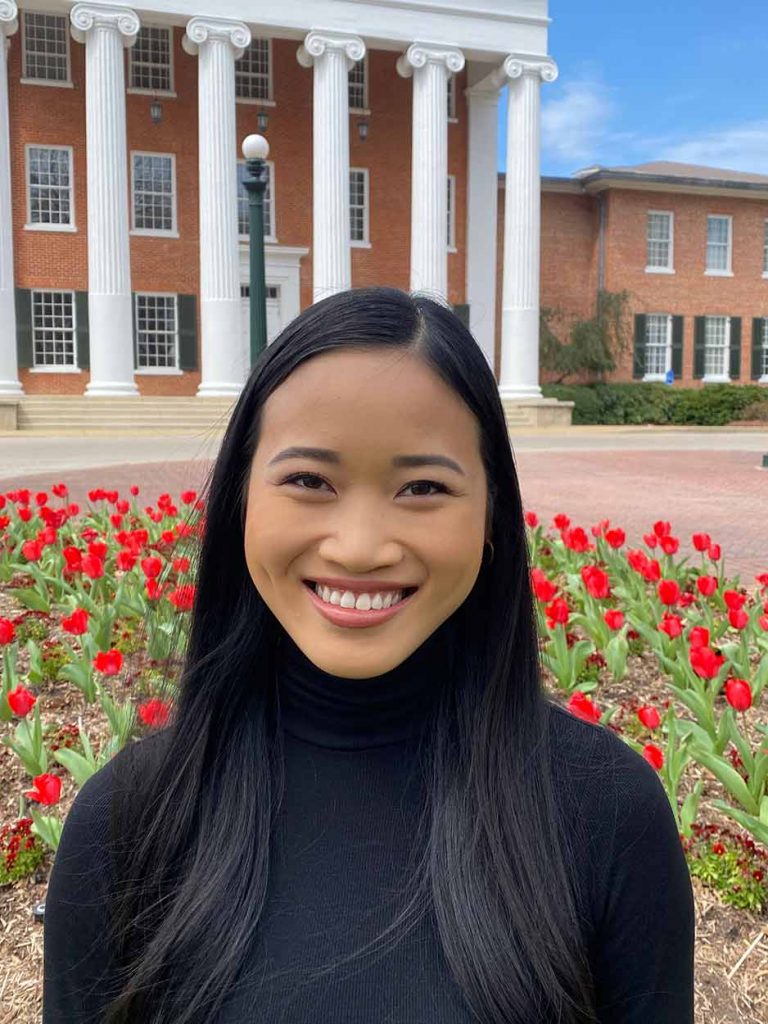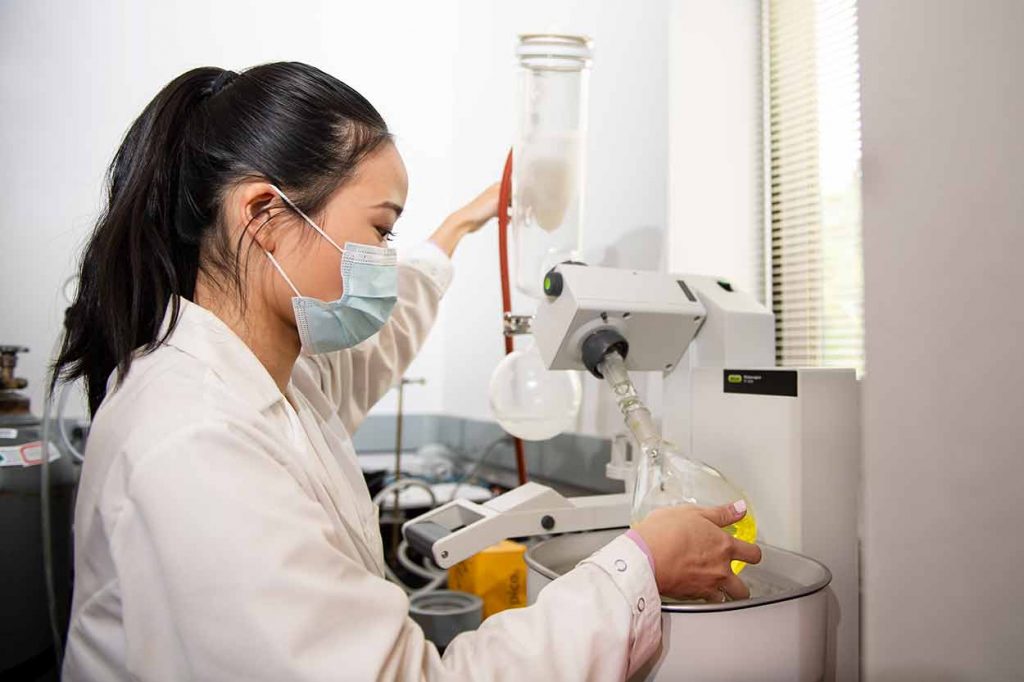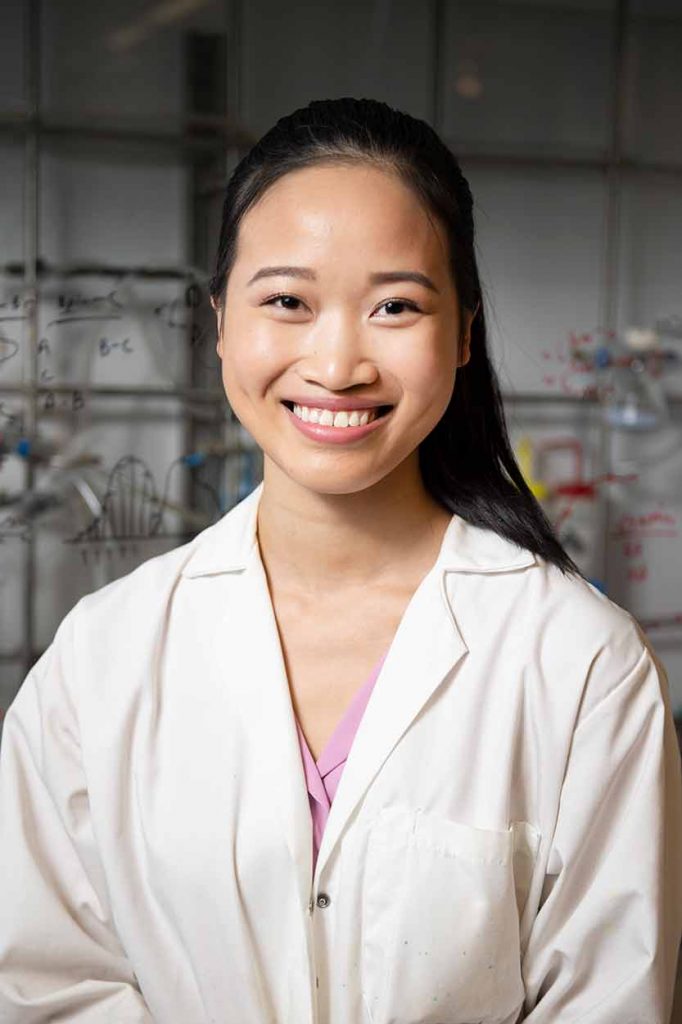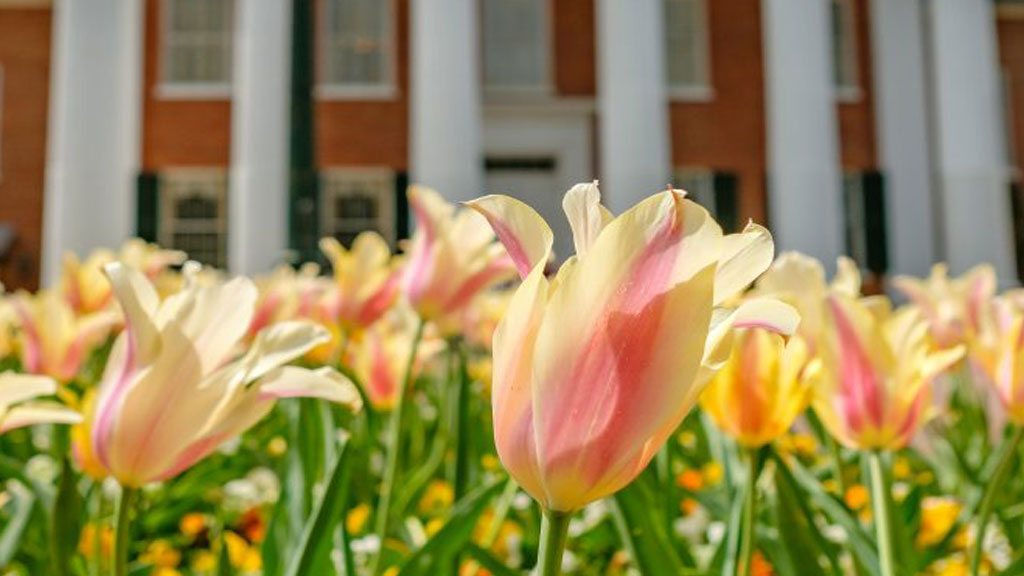For Qing Ivy Li, undergraduate research opportunities confirms career path.
Qing Ivy Li inquired about opportunities to conduct scientific research when she was a new student attending orientation at the University of Mississippi.
She happened to hear Jared Delcamp, an associate professor of chemistry and biochemistry, speak at orientation about the Delcamp Research Group, which focuses on developing dye-sensitized solar cells.

“I appreciated how genuine he was in the advice he gave,” said Li, a graduate of Oxford High School. “It was really informative.”
Set to graduate with a bachelor’s degree in chemistry, Li pursued scientific inquiry and scholarship and embarked on her career path while amassing an impressive undergraduate record.
She joined the Delcamp Research Group as a freshman and discovered the work in the lab not only made her classes in chemistry and biochemistry come alive but also confirmed her choice of career as a researcher.
“I came in as a chemistry major but was uncertain about whether I might pursue medicine or research,” she said. “I like chemistry because it explains small things and big things and is connected to math and the other sciences.
“My time in the lab helped me realize I wanted to go into research.”
In 2021, Li was named a recipient of one of the oldest and most prestigious national awards, the Barry M. Goldwater Scholarship. “It was a defining moment and affirmation that I was on the right track and doing what I should do,” she said.
She also recently received the university’s top academic undergraduate award, a Taylor Medal.
Li’s research concentrates on understanding long-lived, high-energy charge separation triggered by light.

Understanding light-induced charge separations is critical to applications such as night vision devices, synthetic fuels and pharmaceutical drug synthesis. Li helped with the design, synthesis and characterization of a variety of organic dyes, which are responsible for the color of a compound.
Li credits her work in the lab with fully preparing her for her next step, graduate school. She has made oral presentations and presented posters at several conferences and already is a published researcher.
“She will finish her undergraduate studies with no less than five publications, with two of them as first author and two of them in top peer-reviewed journals,” said Delcamp, Li’s research mentor.
“This is incredible for an undergraduate researcher to be this productive and operating at this high of a level in science while maintaining a near-4.0 GPA. Her GPA, intellectual capabilities and research progress are all superior to my own at her age. She is one of the most impactful undergraduate researchers I know.”
A first-generation high school graduate, Li has made the most of her years at Ole Miss.
‘I feel like at Ole Miss I’ve gotten a lot of experiences I wouldn’t have received elsewhere,” said Li, a member of the Sally McDonnell Barksdale Honors College, recipient of a Sally McDonnell Barksdale Honors College Scholarship and a violinist for five years in the Lafayette-Oxford-University Symphony Orchestra.
After graduation, she plans to continue her work with the Delcamp Research Group for another year while she steers four projects to completion and applies to graduate schools with research labs focused on energy production.

“She will finish her undergraduate studies with no less than five publications, with two of them as first author and two of them in top peer-reviewed journals,”
Jared Delcamp
Li would eventually like to lead her own research group at a national laboratory that focuses on designing, synthesizing and applying novel organic molecules for renewable energy purposes.
It has been a pleasure watching Li grow as a researcher from her freshman year to a soon-to-be graduate, said Nathan I. Hammer, the Margaret McLean Coulter Professor of Chemistry and Li’s academic adviser.
“So many students come into college with an interest in science but not really knowing what their true calling is for a career,” he said. “Some migrate to medicine, but others find that medicine is not for them.
“Through the opportunities afforded her as an undergraduate researcher in our department and our Bachelor of Science chemistry degree program in general, Ivy was able to discover her strong aptitude for original research. She truly has the passion for a life dedicated to science and I expect great things from her in the future.”
By Nell Floyd, College of Liberal Arts



